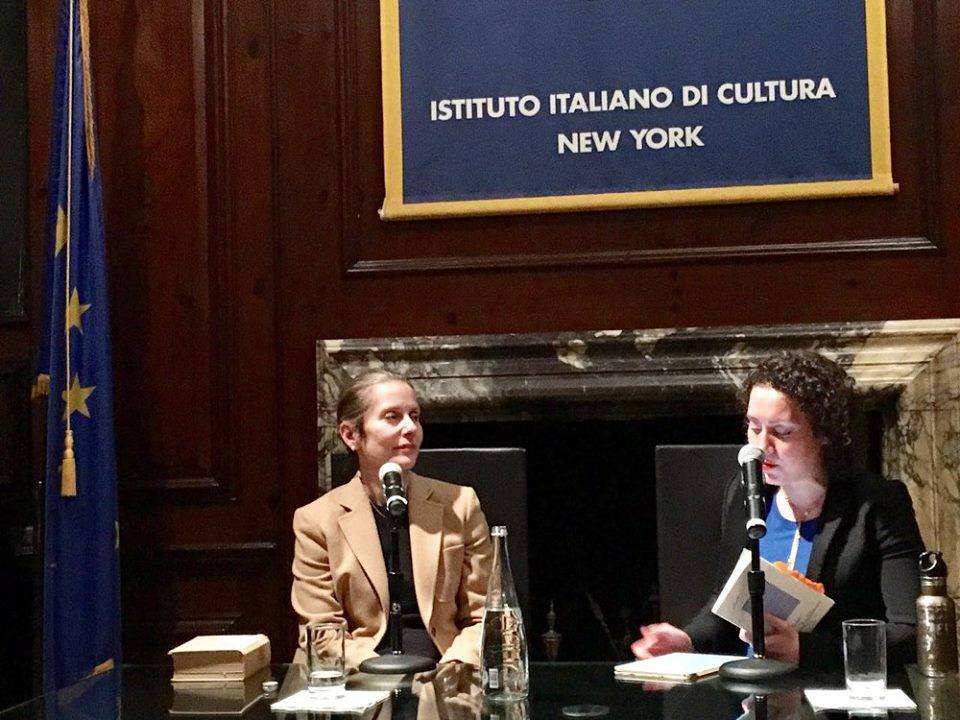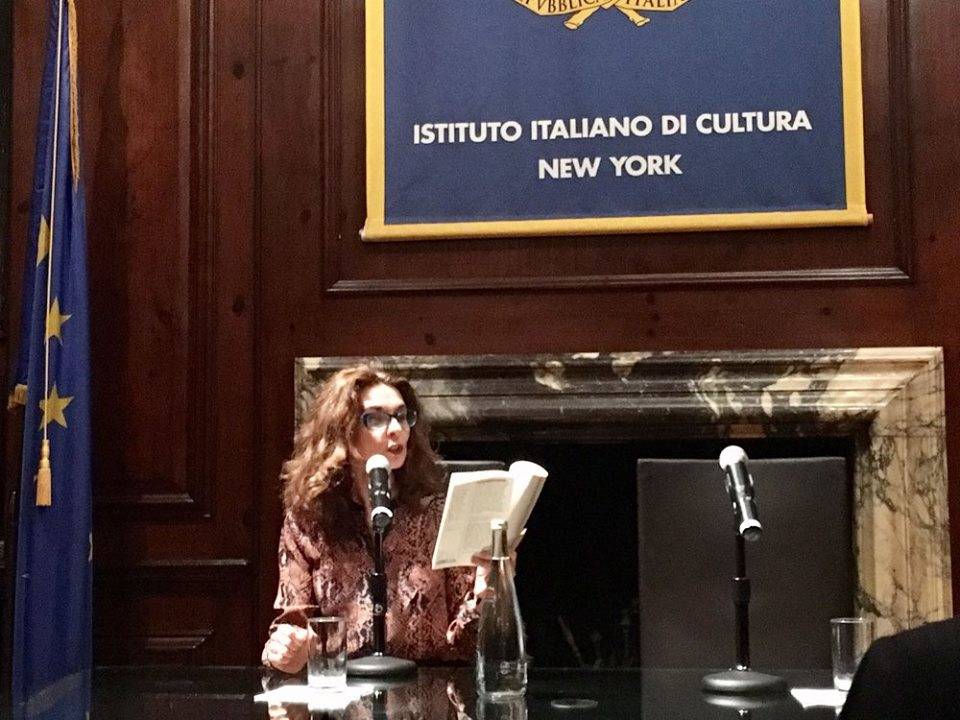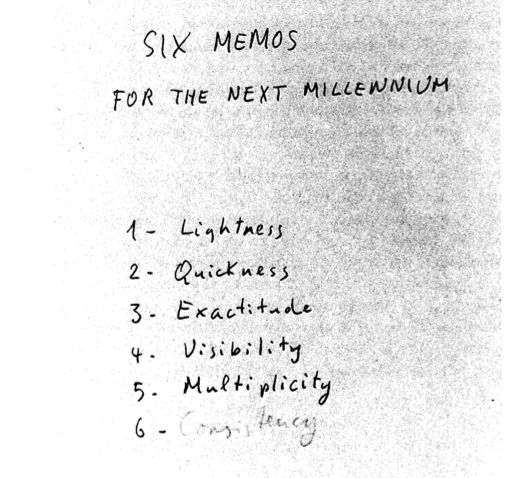Calvino: The Memo of Quickness
This year at the Italian Cultural Institute, there will be an ongoing series dedicated to the renowned writer Italo Calvino commemorating the new translation of his book, Six Memos for the Next Millennium. This work is a collection of lectures Calvino planned to give at Harvard in the fall of 1985 but unfortunately they were never delivered as a result of his death before leaving Italy. Of the five that were completed, each one focused on a different quality that Calvino considered essential in literary writing, including: lightness, quickness, exactitude, visibility, and multiplicity. Accordingly, five separate events will be held at various venues throughout the city.
The Speakers
At the second event of this series the Director of the Institute, Giorgio van Straten, introduced a special guest, the author's daughter, Giovanna Calvino, who also attended the event, and after a few words about her father, offered the floor to the speakers.
Paola Antonelli, senior curator in the department of architecture and design of MoMA and Maria Popova, founder and editor of the extremely popular blog Brain Pickings, focused on Calvino’s memo about quickness, enchantment, and the felicity of storytelling. According to Calvino, quickness is the ability of the writer to control the speed of the story. Time is a special element throughout the wide range of Calvino’s work which includes fairytales, short stories, essays, and lectures.
This discussion was particularly fascinating because each speaker had such different entryways into Calvino’s writings. Popova is from Bulgaria and was exposed to Calvino’s nonfiction as an adult meanwhile Antonelli grew up with his folktales during her childhood in Italy. Antonelli said ”I never approached Calvino from an intellectual academic standpoint, to me it was always a part of my life so it’s fascinating now as an adult to read about all the nonfiction, the Harvard lectures and just another way to approach him and still I recognize him in all this nonfiction.”
Quickness According to Calvino
Six Memos for the Next Millennium demonstrates Calvino’s vision for the future and is one of the strongest exemplifications of the writer’s way of thinking and working. To start off the evening, Popova quoted a beautiful section that sums up Calvino’s point of view on quickness. He writes:
“The motor age has turned speed into immeasurable value with speed records marking the history of the progress of machines and men but speed of mind cannot be measured and does not allow for comparisons or competitions nor can its results be ranked to give historical perspective. Speed of mind is valuable in itself for the pleasure it gives those susceptible to such pleasure. Not for any practical use it can be put to, faster thinking is not necessarily better than considered thinking, far from it, but it conveys something special that has to do specifically with its swiftness.”
Popova and Antontelli went on to debate how Calvino would react to society if he were still alive today. Would he be ranting about how fast the world works now? Would he have embraced it and just appreciated the capacity for lateral expansion of time that the internet can have? Popova pointed out that perhaps the answer could be found in one of Calvino’s letters where he talks about reading the newspaper and comments on the tyranny of the constant input. He admits to having this constant struggle every morning with the newspaper because he wanted to avoid it in order to make time to write.
In another piece, he writes about the notion of how we hog time or spend it we treat it as a resource:
“In real life time is a resource we’re stingy with, in literature time is a resource to be exposed of in a casual leisurely fashion. It’s not a question of crossing some finish line. On the other hand being thrifty with time is a good thing since the more time we save, the more we’ll be able to lose. Quickness of style and thought means above all nimbleness, nobility, and ease all qualities that go with writing that is prone to digression to leap in from one topic to another to losing the thread 100 times and finding it again after 100 twists and turns.”
Festina Lente
It’s interesting to note that the writer’s personal motto comes from an old Latin phrase “festina lente” which can be translated to “hurry slowly.” This concept is so evident in Calvino’s work that Antonelli commented:
“It seems to me that he always has this kind of controversial relationship with quickness like he wanted to write about it because everything was about the contrast between quickness and instead savoring slowness so everything that he says sometimes is almost like a way to make a play of words to communicate this kind of contrast which I don’t think is happening in the other memos, at least not as much.”
Italo Calvino is one of the few Italian writers of the late 20th century who is well known outside of Italy and has inspired other greats not only from the literary world but architects, designers, and philosophers as well. For those interesting in following this series, three more events will be held in New York City in the upcoming months.







































i-Italy
Facebook
Google+
This work may not be reproduced, in whole or in part, without prior written permission.
Questo lavoro non può essere riprodotto, in tutto o in parte, senza permesso scritto.